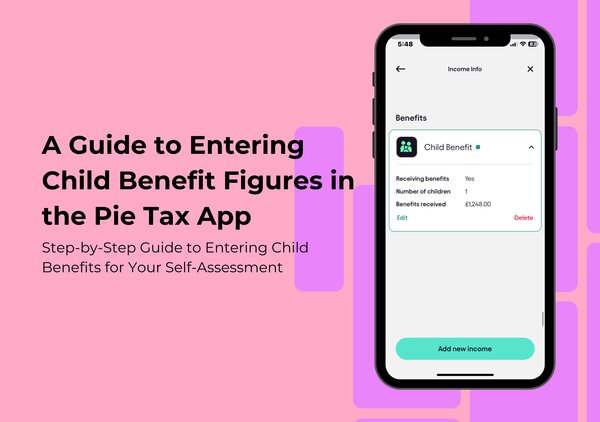
Prime Minister Keir Starmer has issued a stark warning regarding Reform UK's proposed tax and spending plans, suggesting they could precipitate economic instability akin to past financial crises.
Drawing parallels to the 2022 market turmoil under former Prime Minister Liz Truss, Starmer criticised Reform UK's policies as "fantasy economics" that could jeopardise the nation's financial health. As Reform UK gains traction among voters disillusioned with traditional parties, the debate over fiscal responsibility and economic strategy has intensified.
Reform UK's Economic Proposals Under Scrutiny
Reform UK, led by Nigel Farage, has unveiled a series of tax and spending proposals aimed at overhauling the UK's fiscal landscape. Key elements include raising the income tax threshold to £20,000, abolishing stamp duty for properties under £750,000, and eliminating inheritance tax on estates below £2 million. The party also proposes significant cuts to public spending, totaling £150 billion annually, to fund these tax reductions.
Critics argue that these measures disproportionately benefit the wealthiest households. Analysis indicates that the richest 20% could see over £2,400 in additional disposable income, while the poorest would gain just £380. Regions with lower incomes, such as Yorkshire and the East Midlands, would benefit far less compared to affluent areas like London.
Starmer's Comparison to Past Economic Crises
In a recent speech, Prime Minister Starmer likened Reform UK's fiscal plans to the ill-fated mini-budget of 2022 under Liz Truss, which included £45 billion in unfunded tax cuts and led to significant market instability.
Starmer stated, "Now in government, we are once again fighting the same fantasy, this time from Farage. "He accused Farage of "using your family finances, your mortgage, your bills as a gambling chip on his mad experiment," warning that the result would mirror past economic turmoil.
Reform UK's Response and Political Implications
Reform UK has dismissed Starmer's criticisms as a "desperate attack" from a party "behind in the polls."Farage maintains that his party's policies are designed to stimulate economic growth and reduce the tax burden on working people. Despite having only five MPs, Reform UK's recent gains in local elections have positioned it as a significant challenger to Britain's traditional main parties.
The political landscape is further complicated by internal debates within the Labour Party.Some Labour MPs have expressed concerns over the government's approach to welfare reform and tax policy, highlighting the need for a compelling alternative to both Conservative and Reform UK economic ideologies.

Broader Economic Concerns and Public Sentiment
Beyond the immediate political discourse, broader economic concerns loom. Planned changes to the UK's inheritance tax rules, specifically Business Property Relief and Agricultural Property Relief, could endanger over 200,000 jobs and eliminate nearly £15 billion in economic activity, according to research by Family Business UK. These reforms, set to take effect from April 2026, have raised alarms among family-owned businesses across various sectors.
Public sentiment reflects a growing disillusionment with mainstream politics, particularly in regions affected by deindustrialisation and economic neglect. Reform UK's messaging resonates with voters seeking alternatives, emphasising the importance for established parties to address the needs of struggling communities effectively.

Fun Fact
Reform UK, led by Nigel Farage, has quickly gained ground. In the 2024 election, it released a bold manifesto, "Our Contract with You," promising major tax cuts and spending reductions.
Its rise signals growing support for populist alternatives to mainstream parties.
Conclusion
Prime Minister Keir Starmer has cautioned that Reform UK's proposed tax and spending policies could lead to economic instability reminiscent of past financial crises. Drawing parallels to the 2022 market turmoil under Liz Truss, Starmer criticized the plans as "fantasy economics" that could jeopardise the nation's financial health.
As Reform UK gains political traction, the debate over fiscal responsibility and economic strategy continues to intensify.
Frequently Asked Questions
What are the main concerns about Reform UK's tax proposals?
Critics argue that Reform UK's tax proposals, including significant income tax cuts and reductions in public spending, could disproportionately benefit the wealthiest households while offering minimal gains to poorer communities. There are also concerns about the lack of funding plans for these tax cuts, potentially leading to increased borrowing and economic instability.
How does Prime Minister Starmer compare Reform UK's plans to past events?
Prime Minister Starmer likens Reform UK's fiscal plans to the 2022 mini-budget under former PM Liz Truss, which included unfunded tax cuts that led to market turmoil and increased mortgage rates. He warns that similar policies could result in comparable economic consequences.
What is the potential impact of inheritance tax reforms?
Planned changes to inheritance tax rules, specifically Business Property Relief and Agricultural Property Relief, could endanger over 200,000 jobs and eliminate nearly £15 billion in economic activity, according to research by Family Business UK. These reforms are set to take effect from April 2026
How has Reform UK responded to criticisms of its economic policies?
Reform UK has dismissed criticisms from Prime Minister Starmer and others as "desperate attacks."The party maintains that its policies are designed to stimulate economic growth and reduce the tax burden on working people. Despite having only five MPs, Reform UK's recent gains in local elections have positioned it as a significant challenger to Britain's traditional main parties.
What are the broader political implications of this debate?
The debate over Reform UK's tax and spending proposals highlights a broader political shift, with voters increasingly seeking alternatives to traditional parties. The rise of Reform UK reflects growing public disillusionment with mainstream politics, emphasizing the need for established parties to address the needs of struggling communities effectively.











